Alicia: I need to believe, that something extraordinary is possible.
Nash: I've made the most important discovery of my life. It's only in the mysterious equation of love that any logical reasons can be found. I'm only here tonight because of you. You're the only reason I am... you're all the reasons I am.
Nash: Perhaps it is good to have a beautiful mind, but an even greater gift is to discover a beautiful heart.
Evelyn M. Hambleton G. Leonard Hindle 1954


Jennifer Connelly (Alicia Nash) Russell Crowe (John Nash)
In the academy award winning film, A Beautiful Mind, there is a portrayal of faith that just may be the best Hollywood has ever presented. In my, not so beautiful, mind, this film does a far better job of revealing the meaning of the gospel than 90% of what is presented in Church Services and Christian television programs all over North America every week. The power at the heart of this movie is articulated at the mid point of the film in a dramatic exchange between John and his longsuffering wife, Alicia. Alicia is challenged to her breaking point by John's schizophrenia but when she is asked if she would abandon him she says, more in exasperation than hope, that she would stay because, "I need to believe that something extraordinary is possible". In a nonreligious way she was reflecting every human being's need to hope in the power of love and in the possibility of the miraculous.
I personally have not seen anything that I could classify by the usual definition as a miracle. No amputated limbs restored, no sight regained, no Downs Syndrome reversed, no person with C. P. made free of his binding condition, no bodies of water parted for me to pass through, no lightning streaking from on high to smite mine pesky enemies, no plucking from harms way by an unexpected whirlwind, no raising a loved one from death. But what I have seen that can approach this type of miracle is the faith, love and strength of character revealed in the unheralded life and death of Evelyn Maude Hindle (nee Hambleton).
While growing up on a farm in the Niagara region, my mother was taught to believe all the stories of divine intervention that fill the pages of the Bible.

She took this faith so seriously that after graduating from Bible College she went to the wilds of the Manitoulin Island where she helped establish several churches that have continuously preached the full Pentecostal gospel for over five decades. It was during this time, as she was pastoring the church at
Tehkummah Ontario, that she met my father, G. Leonard Hindle.
When they met Dad claimed to have had a conversion experience and he maintained this position till a few years after they were married. In all likelihood he had an encounter that was genuine (I can't imagine my mother marrying him otherwise) but the overwhelming darkness of depression swept over my father again and again and no amount of prayer or doctor ordered port wine could alleviate his oppression. In his pain and frustration he became bitter against God and against those who talk so glibly about Him and His wonder working power. My father began making my mother's days extremely difficult. Her life became collateral damage in Dad's war with God.
My mother's faith and her family were everything to her but Dad would not tolerate her serving a God who had been impotent or unwilling to remove the dread darkness of depression in his life. I can't blame him too much because I feel the very same way a great deal of the time (heredity makes me susceptible to the same dark episodes and prayer hasn't changed that), but I might not have been able to forgive his treatment of my mother if it had not been for my mother's persevering love on her deathbed.
In 1993 my mother contracted pancreatic cancer and spent her last days in the Sudbury General Hospital. As she lay dying an awful, lingering death, she eventually fell into a coma. On the night before she left us, she regained consciouness and was able to speak for a few hours. The lady who shared her hospital room told us later how Mom said she was trusting for her healing but that she was ready for death if God called her. Mom shared how much her family meant to her and how she loved each one of us. She told her room mate that after her marriage her family had become her mission field and she tried with all her life to be faithful to that calling. She said she felt assured that her children would die in faith (despite evidence to the contrary at the time) but Mom was deeply concerned about her husband. She was burdened about the soul of the very one who had made her life so difficult, the one who thwarted her spiritual life whenever he could. Her heart went out to the man who forced her to stay up late after he had gone to bed so she could read her bible and pray. She was concerned about the man who would force her to turn off any religious broadcast she listened to, and who would not let her fellowship at her church.
As we were growing up our father would rail against God and faith and repeatedly claimed that all anyone would ever get out of life is six feet of dirt. He told us that we were dogs who die and our lives have no meaning or value. This type of sermon was especially hard for Mom to bear when her children were the congregation sitting under his teaching. Dad's pain drove him to undermine faith wherever it saw it, yet the soul of the man who tormented and taunted her faith was Mom's greatest burden on her deathbed. Her last conversation left her children with an assignment; 'Pray for Dad's soul'. I wanted to honour her request but in my heart I wondered if such an request was too much even to ask of God.
During the next eleven years after her burial my Dad continued spitting nails against the church (I can not blame him because I have seen so many excesses and fraudulent misuses of the gospel that are tolerated and sometimes practiced by Christian leaders).

By the summer of 2002 Dad had left his apartment to go live in the Wikwemikong Seniors Home. He had been in failing health. During one of our visits in the fall of 2003 I showed my father the last music video by Johnny Cash called Hurt. It is a retrospective of Cash's life and it doesn't paper over the suffering he felt and or the times he told God to. 'Stay the Hell Away from me , ya here!' . In the final scenes, his life's full meaning is revealed in pictures of the crucifixion of Jesus and then it shows Johnny Cash slowly and reverently closing the lid on his golden piano as if it were his own coffin.

The symbolism was powerful.
My Dad and I were sitting in the lunchroom watching the video on my laptop computer and everyone in the room gathered around to share the moment with us. They seemed genuinely touched by the life story of the man in black. I told Dad that Johnny was a man of faith who believed despite the pain and disappointments of his life. That day Dad was very quiet and respectful. I think he knew that his time was short and that he needed to consider the last things. Perhaps it was then that he began to realize that love is more important than comfort, more important than riches, more important than pride or even death. Perhaps it was more important than having the last word.
My sister Lorna said she thought he was mellower and more thoughtful that winter.
In late January of 2004 Dad fell and broke some ribs. He had been suffering from dizziness and fainting spells for some time and no one could diagnose the cause. The ambulance was called and he was taken to the Little Current Hospital where he quickly developed pneumonia. That was a very stormy snowy winter and the hospital was an eight hours trip north of my home so I waited to hear from my sisters Muriel who came in from Sudbury and Lorna from Elliot Lake to tell me if he was recovering. I was ready to go but I wavered. Dad seemed to have an everlasting hold on this life and I wondered if he would ever leave the planet. Perhaps he would recover and live another decade.
I waited until Sunday morning when I was told Dad couldn't talk anymore and was fading quickly. I knew I couldn't wait any longer. My sister Lorna told Dad that I was coming and he seemed to understand and was relieved to hear that I was on my way. I wanted to say goodbye because, despite his gruffness, I knew he loved his family, it was just that he found his life too difficult, too painful and so he was hard pressed to show much affection or enthusiasm for anybody or anything. When I got about twenty kilometres south of Sudbury my cell phone rang. It was my sisters informing me that Dad had passed away. Since the storms had come in so quickly and often that winter I decided to turn around to get my wife Cathy and daughter Evie so we could all come up for the funeral. I didn't want to be stranded so far from home. As I drove back to London I asked God about Dad's soul. I have to confess that many times in my life, when Dad was most stubborn and I was most frustrated and evil, I had prayed for his death but this day I wished for a moment to hug him and tell him I loved him and that I understood how difficult his life had been. I wanted to assure him that the life that is Life indeed was be about to begin for him. I experienced some regret that I wasn't going to be able to do that but for some reason I felt at peace.
As I traveled and prayed I noticed that a beautiful song was playing on the secular radio station that I was listening to. The song was called 'I Can Only Imagine'. It tells of the emotions of a person who suddenly finds them self in heaven in the presence of God. It was full of beautiful images of love, acceptance, awe, wonder and joy and I began to imagine what Dad might be experiencing as he left this life. I was confident that even though my father had been a vocal opponent of God, his hard exterior would melt in the light of God's immediate presence. 
The passage from this life to Life itself, or some may say to nothing, is an interesting one that has intrigued me for years. People have reported very similar near death experiences. These indicate that dying is a process and that the mind and heart are involved to the last instant. In the transition to whatever lies beyond there is usually an encounter with a being of light and love, God (?) Jesus (?) and loved ones who have gone on. In my heart I felt assured that Dad was not so strong or evil that he could resist that last best witness from the spirit of God Himself and I felt that Dad had bowed his knee and been received by grace into whatever lies beyond. A couple of days later just before the funeral my sister Lorna told me that she had heard from Isadore Pheasant and his wife Isabel, two native evangelists from the Wikwemikong Reserve. They had told her that our father had been attending Monday night services at the Seniors home that winter and that two days before he fell and broke his ribs he had confessed his faith and prayed with Isabel to receive Jesus. Before the funeral took place we had learned that Mom's final prayer had been answered.
My mother's enduring faith had been met by my Dad's newfound or resuscitated one and I knew 'that something remarkable can and did happen'. It had been born out of years of pain and bitter disappointment but it had happened. This was the 'something extraordinary' that tells me that the power of love and faithfulness, and the rule of courage and faith are things that endure and win in this world and the next. Just as Alicia Nash's more secular faith in A Beautiful Mind was met with the triumph of her love and was celebrated by John Nash during his Nobel Prize acceptance speech, my mother's heart cry was answered in the reconciliation of God and my father.
My personal assessment is that these things are much better than the sideshow that many evangelists and healing crusaders put on  because Alicia Nash's and my mother's lives were real. It wasn't a quick prayer and a miracle that got them back on the road to Hollywood health, wealth and prosperity. It was much more difficult and important and wonderful. The miracle was love in the face of long suffering and many disappointments. It was Christianity lived in the little moments of an everyday life that was terribly difficult and often painful.
because Alicia Nash's and my mother's lives were real. It wasn't a quick prayer and a miracle that got them back on the road to Hollywood health, wealth and prosperity. It was much more difficult and important and wonderful. The miracle was love in the face of long suffering and many disappointments. It was Christianity lived in the little moments of an everyday life that was terribly difficult and often painful.
My mother's faith was authentic and it has become a wonderful legacy for her chidren.
Eventually this kind of faith may became the victory promised by Christ that overcomes the world.
Let us all pray for the grace to live in such a way that we may be part of that victory.
HAPPY MOTHER'S DAY MOM!
And Dad, did you remember to bring her flowers this year?
Somehow I imagine you did.

But of course for, now..............................................
I can only imagine.
LH





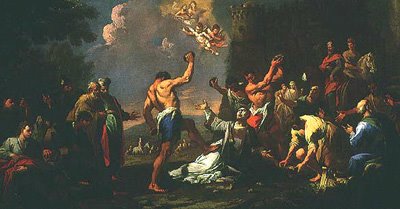





 By the summer of 2002 Dad had left his apartment to go live in the Wikwemikong Seniors Home. He had been in failing health. During one of our visits in the fall of 2003 I showed my father the last music video by Johnny Cash called Hurt. It is a retrospective of Cash's life and it doesn't paper over the suffering he felt and or the times he told God to. 'Stay the Hell Away from me , ya here!' . In the final scenes, his life's full meaning is revealed in pictures of the crucifixion of Jesus and then it shows Johnny Cash slowly and reverently closing the lid on his golden piano as if it were his own coffin.
By the summer of 2002 Dad had left his apartment to go live in the Wikwemikong Seniors Home. He had been in failing health. During one of our visits in the fall of 2003 I showed my father the last music video by Johnny Cash called Hurt. It is a retrospective of Cash's life and it doesn't paper over the suffering he felt and or the times he told God to. 'Stay the Hell Away from me , ya here!' . In the final scenes, his life's full meaning is revealed in pictures of the crucifixion of Jesus and then it shows Johnny Cash slowly and reverently closing the lid on his golden piano as if it were his own coffin. 

 because Alicia Nash's and my mother's lives were real. It wasn't a quick prayer and a miracle that got them back on the road to Hollywood health, wealth and prosperity. It was much more difficult and important and wonderful. The miracle was love in the face of long suffering and many disappointments. It was Christianity lived in the little moments of an everyday life that was terribly difficult and often painful.
because Alicia Nash's and my mother's lives were real. It wasn't a quick prayer and a miracle that got them back on the road to Hollywood health, wealth and prosperity. It was much more difficult and important and wonderful. The miracle was love in the face of long suffering and many disappointments. It was Christianity lived in the little moments of an everyday life that was terribly difficult and often painful.  But of course for, now..............................................I can only imagine.
But of course for, now..............................................I can only imagine.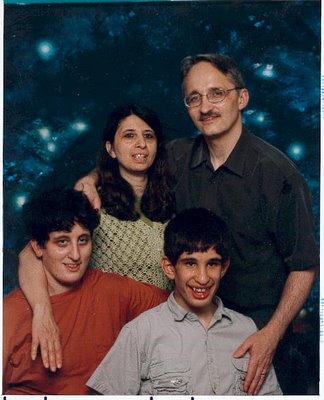











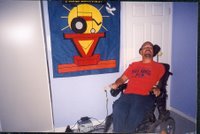

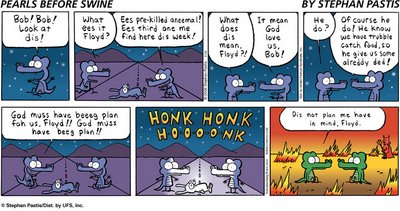
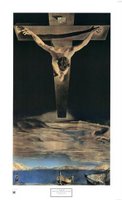
 I think Martina McBride has just about said it* as well as anyone ever has in her song 'Love's The Only House' and Salvador Dali has painted it* as well as it* can be expressed in this picture titled 'St. John of the Cross' .
I think Martina McBride has just about said it* as well as anyone ever has in her song 'Love's The Only House' and Salvador Dali has painted it* as well as it* can be expressed in this picture titled 'St. John of the Cross' .









